Are you a student looking to sharpen your academic skills or one seeking a rewarding tutoring role? Crafting the perfect application letter for a tutoring position is crucial to making a great impression. It's all about showcasing your strengths, highlighting your passion for teaching, and making a personal connection with the hiring committee. So, if you're eager to find out how to write an impactful letter that stands out, keep reading!
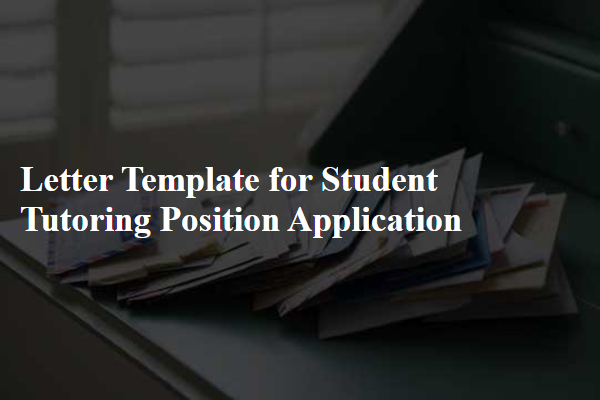
Personal Information
Applying for a student tutoring position often requires presenting personal information clearly and concisely. The applicant should include full name, current education status, and relevant contact details such as telephone number and email address. Additionally, specifying any academic achievements (such as GPA or relevant coursework) can enhance the profile. Mentioning previous tutoring experience or related skills such as communication or leadership can further strengthen the application. This essential personal information should be organized, professional, and tailored for the specific tutoring position, emphasizing the applicant's qualifications and motivation to assist peers in their academic journey.
Educational Background
The educational background of a candidate applying for a student tutoring position often plays a crucial role in demonstrating their qualifications and expertise. Typically, this includes details such as degrees obtained, institutions attended, and relevant coursework. For instance, a Bachelor of Science in Mathematics from the University of California, Berkeley, where the applicant achieved a GPA of 3.8, highlights strong proficiency in quantitative subjects. Additionally, completion of specific education courses, such as Educational Psychology and Learning Theory, may indicate an understanding of effective teaching methodologies. Furthermore, involvement in extracurricular activities, such as being a member of the Math Club or participating in peer tutoring programs, enhances the applicant's hands-on experience with student engagement and educational support. Certifications such as CRLA Level I Tutor Certification also add credibility to the tutoring expertise.
Tutoring Experience
Impactful tutoring experiences shape student success, especially in subjects like mathematics and science. Students, particularly those in grades 6-12, often face academic challenges that can hinder overall confidence. Leveraging one-on-one sessions enhances understanding of complex concepts, such as algebraic equations or chemical reactions. Tailored sessions use resources like practice worksheets or online learning platforms to reinforce lessons. Positive outcomes, evidenced by significant improvements in grades and standardized test scores, reflect the effectiveness of consistent tutoring. Engaging methods, including interactive problem-solving and real-world applications, cultivate a supportive learning environment, leading to greater student engagement and academic achievement.
Relevant Skills
A student applying for a tutoring position must highlight key relevant skills that showcase their ability to help others. Strong communication skills, particularly verbal and written, are essential for explaining concepts clearly to peers. Proficiency in specific subjects, such as mathematics or science, demonstrates the applicant's expertise, especially if they have achieved high grades (e.g., GPA of 3.8 or higher). Patience and empathy play crucial roles in tutoring, as they ensure the student can understand different learning paces and styles. Time management and organizational skills are equally important, enabling the tutor to plan engaging sessions efficiently while tracking student progress effectively. Experience in mentoring or tutoring, whether through volunteer work or school programs, adds credibility to the application.
Availability and Commitment
Availability plays a crucial role in the success of a tutoring relationship. Students often require flexible scheduling to accommodate their varying academic demands. Late afternoons and evenings, typically between 4 PM and 8 PM, are popular time slots for tutoring sessions. Commitment to regular meetings, ideally on a weekly basis, fosters a consistent learning environment and helps build rapport between the tutor and student. Maintaining a minimum of three months of engagement can significantly enhance the effectiveness of tutoring. In addition, a willingness to adjust schedules to meet student needs demonstrates a tutor's dedication to their academic success. Locations such as libraries, schools, or online platforms also influence availability and convenience for students seeking assistance.
Letter Template For Student Tutoring Position Application Samples
Letter template of application for tutoring position in educational institutions.
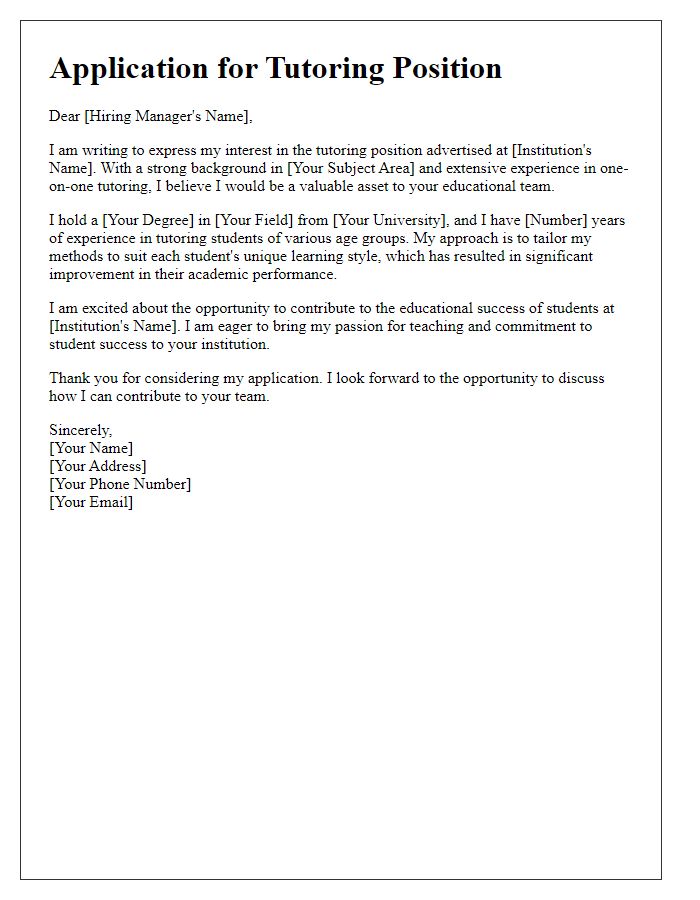
Letter template of request for tutoring appointment in after-school programs.
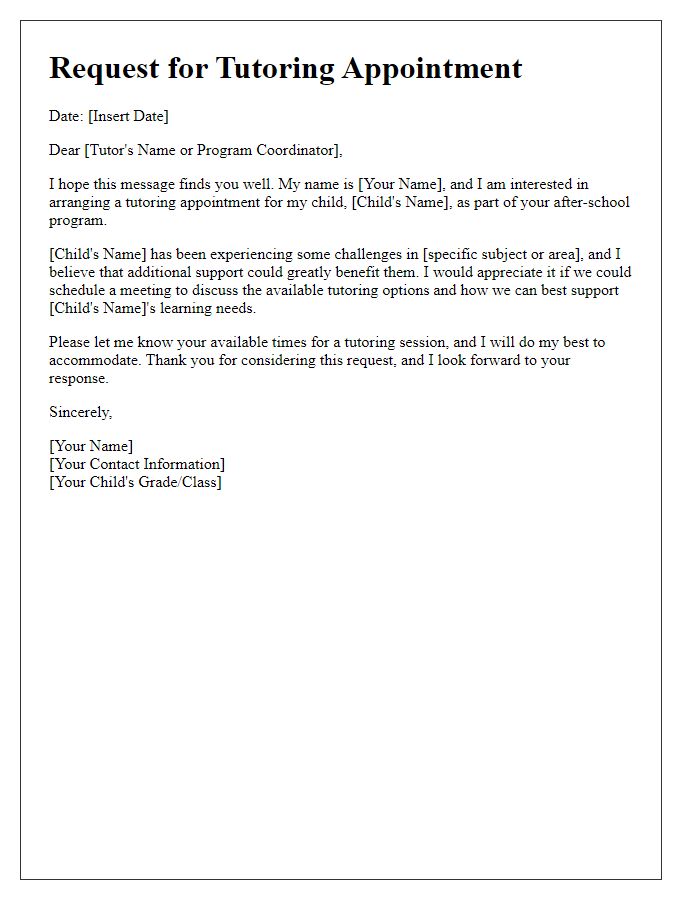

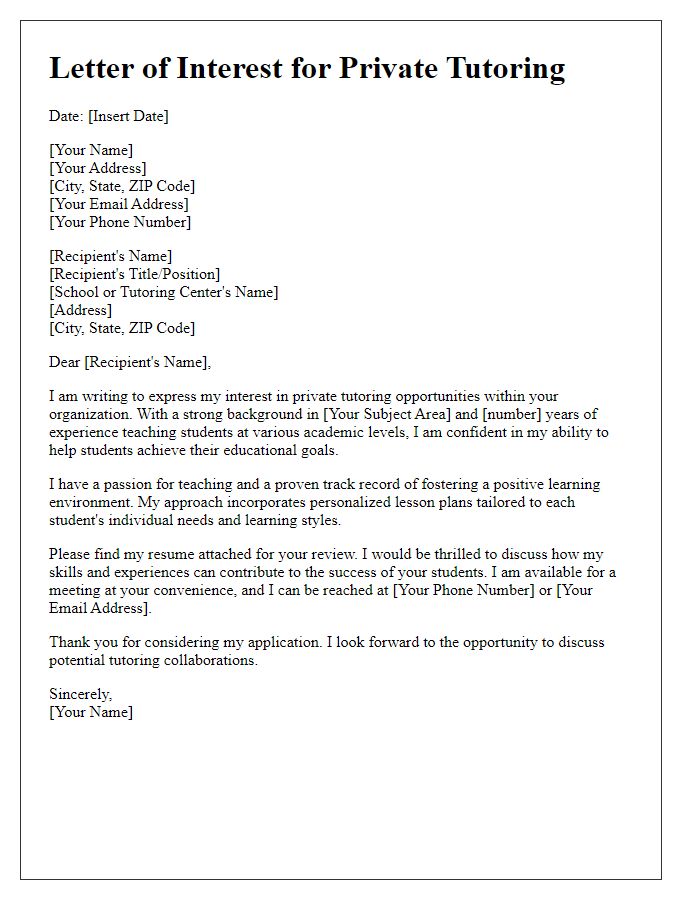
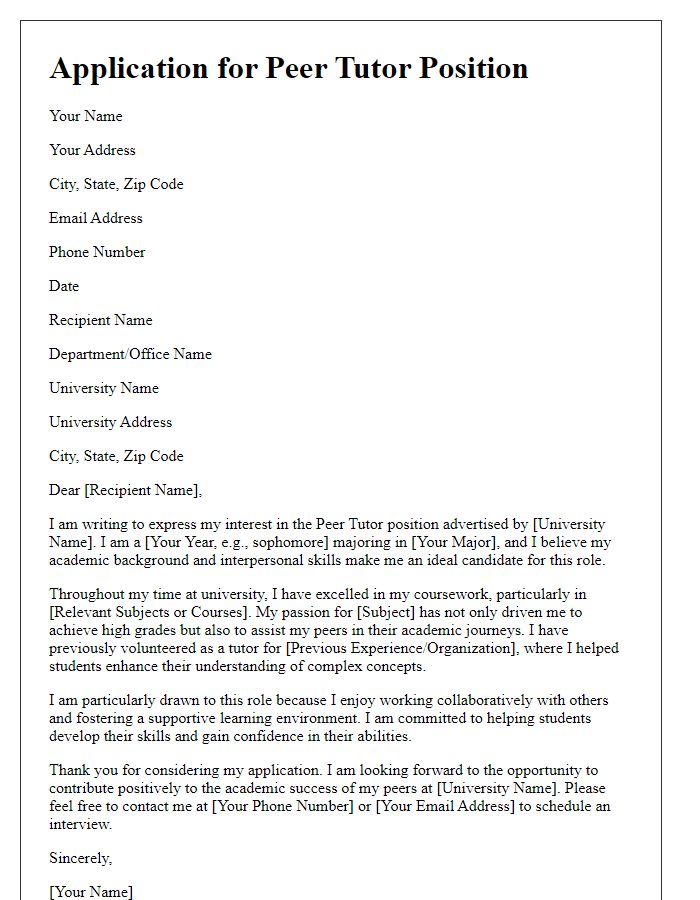
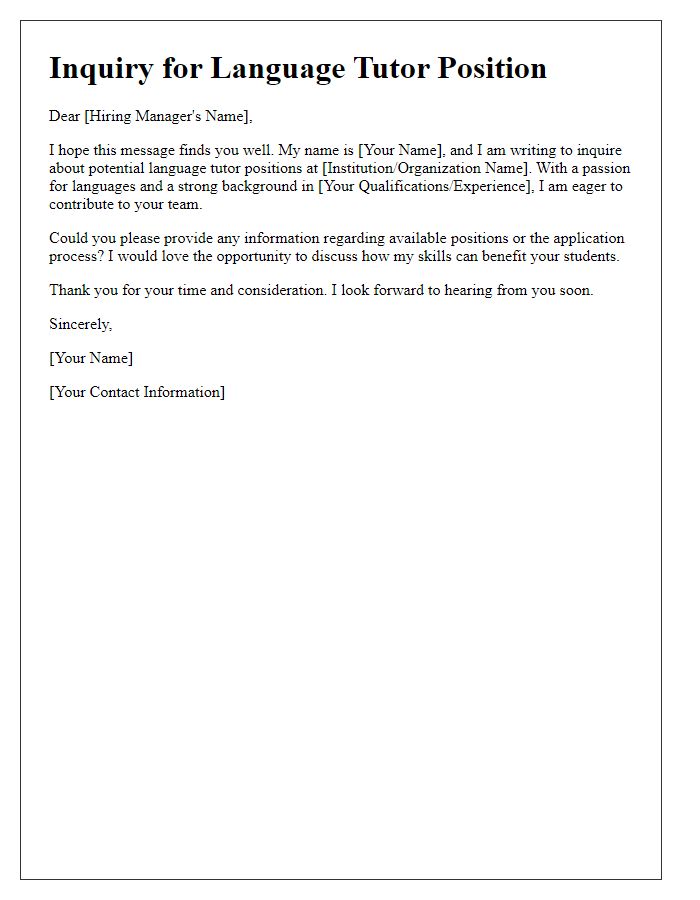
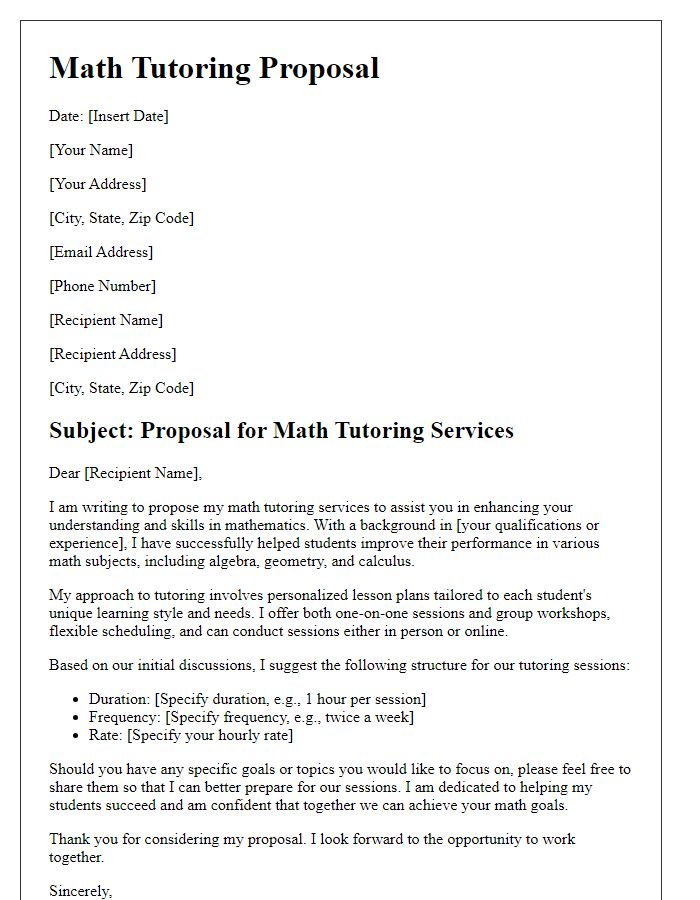
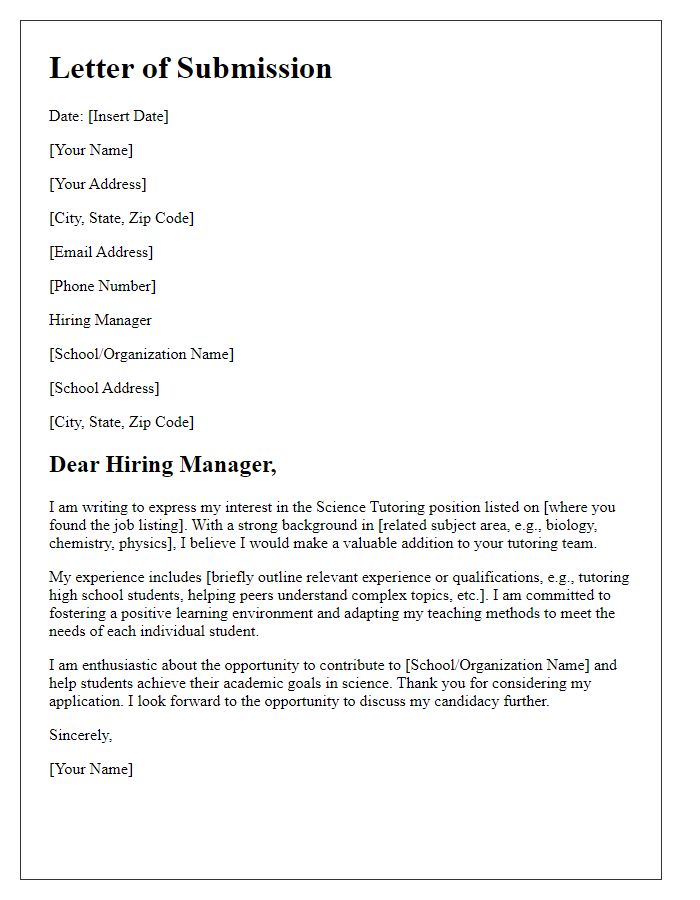
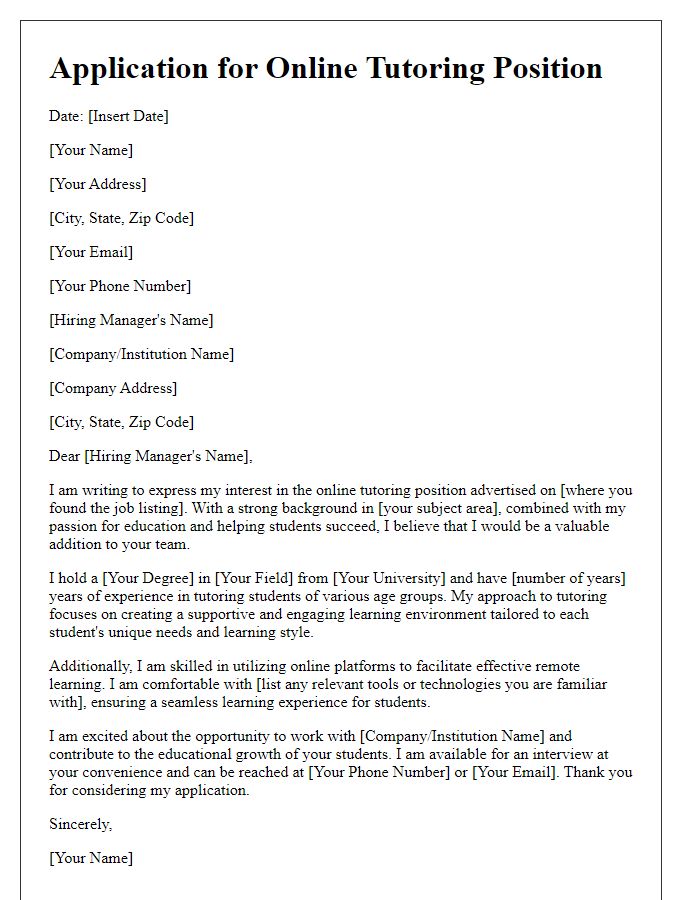
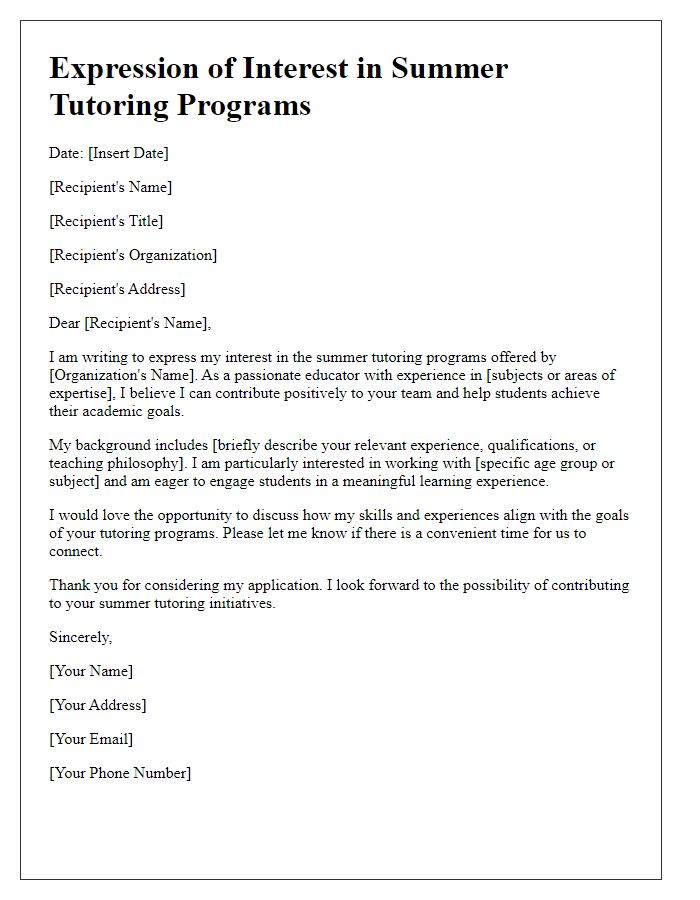
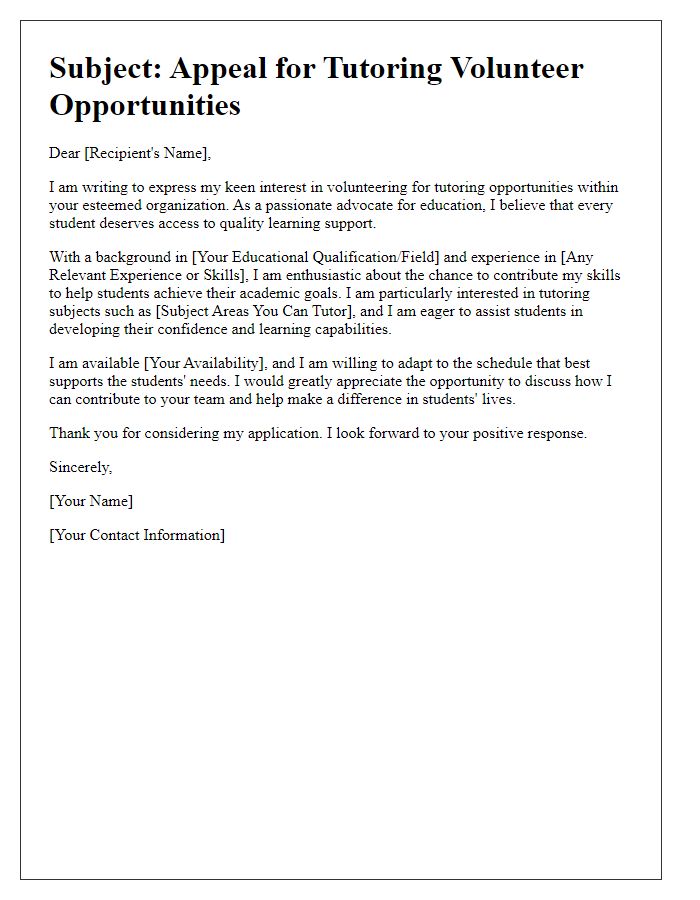

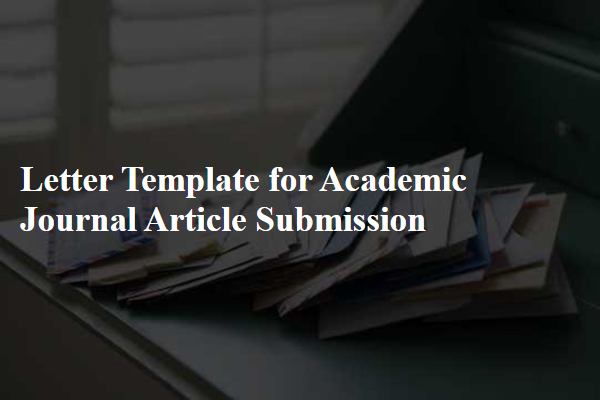
Comments